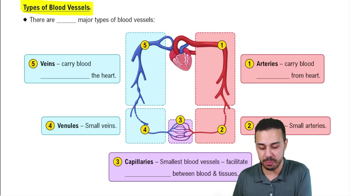More than one choice may apply.
Which of the following is not typical of leukocytes?
a. Amoeboid movement
b. Phagocytic (some)
c. Nucleated cells
d. The most numerous cells in the bloodstream
 Verified step by step guidance
Verified step by step guidance Verified video answer for a similar problem:
Verified video answer for a similar problem:



 4:5m
4:5mMaster Introduction to Leukocytes with a bite sized video explanation from Bruce Bryan
Start learning